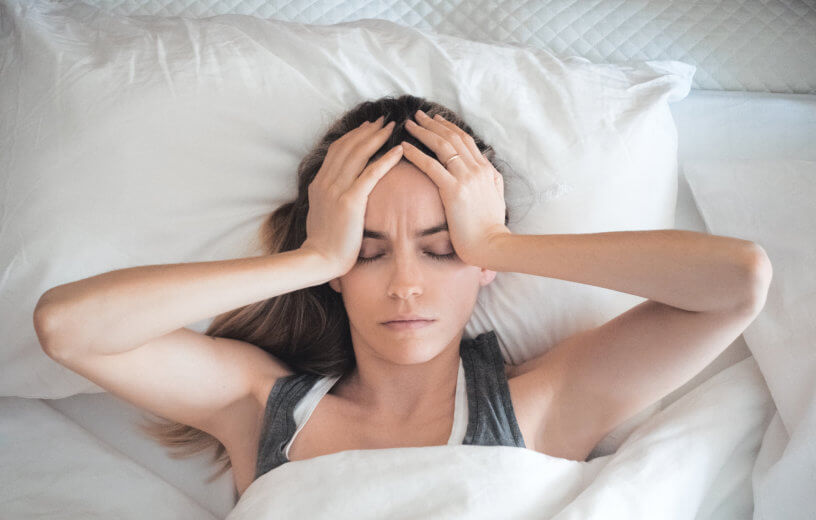- New survey finds 48% of adults are kept awake at night from worrying about the coronavirus.
- Only 18% of respondents feel “refreshed” when they wake up each morning.
- Four in ten parents say their children are waking up later than they used to.
LONDON — Adults may be sleeping a bit longer due to the lockdown measures in place across the world, but that doesn’t mean they’re feeling more rested. According to a new survey of 2,000 British citizens, the average respondent is sleeping an extra hour each week, yet one in four also said their sleep quality has never been worse.
Before the pandemic, the average U.K. adult would get six hours and 43 minutes of sleep on a typical weekday night. Now, respondents said they are sleeping just under seven hours each night, which adds up to an extra hour per week. Others are sleeping in far more than usual, with 13% averaging over eight hours of sleep per night.
The research, commissioned by Eve Sleep, also noted that many respondents blame their poor sleep quality on working later into the evenings nowadays or snacking close to bedtime. Another 20% can’t help but read the news before bed, which of course puts them in the wrong frame of mind for a restful night. The most frequent reason for poor sleep cited by respondents, however, was simply adjusting to how different life has become since the coronavirus took grip of the world.
“Routine is hugely influential on how we sleep – not just for how long but the quality of sleep itself,” comments Cheryl Calverley, Eve Sleep CMO in a statement. “Simply going to bed and waking up the same time every day can have a huge impact on how we feel the following morning, leaving us better able to deal with the anxiety and uncertainty we’re all facing.”
Meanwhile, 27% said they are staring at screens more often before bed since the quarantine began. Also, close to 10% suspect their poor sleep patterns are due to exercising later than they usually would during normal times. Close to half (48%) said they just stare at the ceiling worrying about the coronavirus until they fall asleep.
Thanks to all these disruptions, 47% have seen their dreams change and become more unusual, and 14% are tossing and turning more while they sleep. Circling back to dreams, more than 10% said their dreams have even become stressful.
As far as how the morning feels, 18% said they feel refreshed in the AM. But, 27% are lethargic and 23% feel more sleepy than anything else in the morning.
All that being said, it isn’t all bad for some respondents; close to 20% said they are cooking more, 10% are eating healthier, and 13% are more open to exercising. In all, 25% are exercising more than usual already.
Another 20% are enjoying how their lives have “slowed down,” and 22% appreciate the time they’re spending with their family during lockdown. Isolation measures have also forced many of us to work from home, and close to 20% of respondents said they work from their couch, while 10% work from bed.
Of course, being stuck inside all day also leads to some unhealthy habits. Close to one in four are snacking more and 31% are watching more television.
What about the kids? It seems children aren’t immune to coronavirus sleep disruptions either. A total of 15% of surveyed parents said their kids are going to bed later and 40% said their children are waking up later. So, 32% are worried about getting themselves and their family back on a regular sleep schedule once the pandemic is over.
The survey was conducted by OnePoll.
Like studies? Follow us on Facebook!
